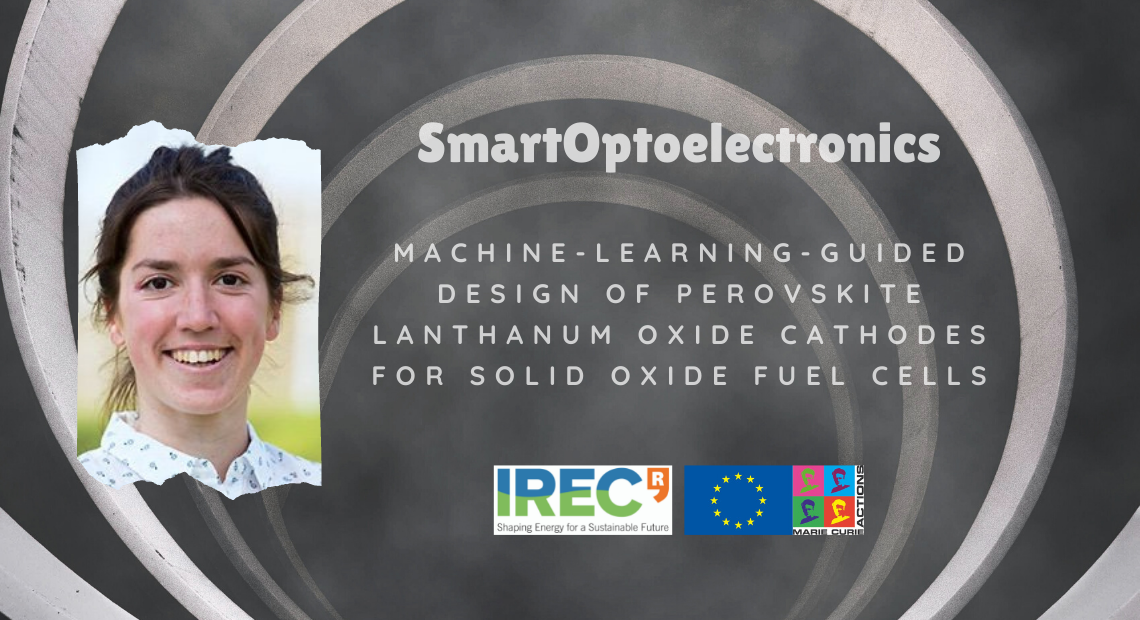Microscale thin-film-based solid oxide fuel cells (μSOFCs) are an emerging alternative for portable power supply due to their high efficiency, fuel flexibility and high volumetric and specific power densities. Promising cathode materials for μSOFCs are perovskite lanthanum-based oxide materials that have improved oxygen transport properties and resistance to the high operating temperatures. However, the physicochemical factors influencing the performance of these materials are still to be well understood. The SmartOptoelectronics project will develop machine learning (ML) methods to establish trends between the structural properties and the electrochemical performance of perovskite lanthanum based oxides based on high-throughput experimental data. These techniques will be used to explore the chemical space of lanthanum-based oxides with the goal of understanding and designing lanthanum-based materials with enhanced performances for μSOFC applications.
SmartOptoelectronics is a HORIZON-MSCA funded project that stands for “Machine-learning-guided design of perovskite lanthanum oxide cathodes for solid oxide fuel cells“, to be carried out by Carlota Bozal. The project starts on June the 1st, 2022, and will run for 2 years. It is led by the Nanoionics and Fuel Cells group at IREC, and involves the University of Toronto as a beneficiary, who will host the researcher during the first year in Canada.
The project will have a high impact on the work programme and on the candidate’s skills and future prospects by developing an expertise in machine learning and large-scale clean energy conversion devices, which are Key Enabling Technologies in Horizon Europe and complement her background in spectroelectrochemistry of multi-redox catalytic materials. The project will also re-enforcing the candidate’s transferrable skills and technology transfer competence as part of the KIC Innoenergy community and the clean energy R&D&I sector.
In summary, the SmartOptoelectronics project will validate advanced machine learning, statistical and high-throughput methods for the understanding and exploration of the chemical space of lanthanum-based oxides. The goal is to discover and optimise materials with enhanced performances for solid oxide fuel cell applications.
Funded by the European Union. Views and opinions expressed are however those of the author(s) only and do not necessarily reflect those of the European Union or [name of the granting authority]. Neither the European Union nor the granting authority can be held responsible for them.




